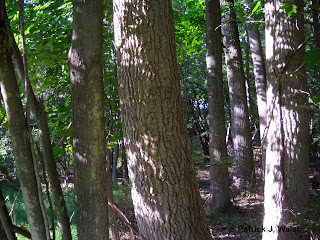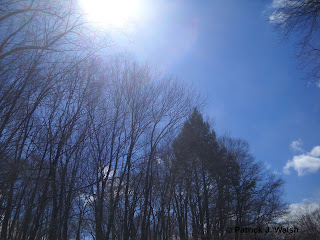My friend Francis has died.
After 87 years on this Earth, 47 of which he spent in service to the Roman Catholic community of Peekskill, New York at the Church of Our Lady of the Assumption, Monsignor Francis J. Ansbro has entered into eternal life.
Along with the large number of those whose lives he impacted as a priest, I mourn his loss, and marvel at the results of his ministry.
It is heartening to realize that even in this time when the average person doesn't hear a whole lot of praise for the priestly life, there are those whose example makes it easy to see and celebrate the virtues of the humble Catholic clergyman.
 |
| Monsignor Ansbro saying Mass for my parents' 25th wedding anniversary, June, 1973. |
But even as I ponder his achievements — so evident in the tender recollections of his fellow priests, and the fervent admiration of the parishioners he served — I cannot help but think of him, simply, as my friend Francis.
In my recollections, he is still the bright, innocent-looking young man who seemed more like an older brother or youthful uncle when I was a child; the wise, gentle friend chatting with my Dad and Mom across the dinner table when I was a young man; and finally, my dear old friend in those increasingly rare moments when we ran into each other in later years, as he struggled with ill health and I dealt with the usual preoccupations of approaching middle age.
Other than my beloved aunt, who is a Dominican Sister, Monsignor Ansbro was the formative inspiration of my understanding of the religious as warm and welcoming individuals with full lives and full hearts.
His humility and kindness were evident in every interaction I ever had with him, over the entire course of the time I knew him.
Although his understanding of life was far advanced from my own, and by virtue of his profession, education and experience he was far superior in wisdom and understanding, he approached me always, simply, as a friend.
When I was a child, he delighted in chatting about baseball or talking about my favorite foods, or making silly puns. In the midst of a conversation with my Mom and Dad and I, he would nonchalantly refer to himself as "Ancis Fansbro" — and then slyly sneak a look at each of us to see how long it would take for us to realize what he'd said.
In my mid-20s, when my Dad was preparing for his own rapidly approaching death, at an age that still seems far too young for all those who knew and loved him, Father Ansbro shared the experience with us as deeply as any family member.
Looking back in recent days, I've come to realize that he and my Dad had been friends for some 22 years at the time of Dad's passing — fully a third of my father's entire life. And I remember vividly the gentle priest's words of admiration for the way in which Dad dealt with his final illness, when he said he'd never seen anyone approach death with such faith.
As an adult, I'd like to think that I was always on my best behavior whenever I was in the presence of my friend Francis. He did after all inspire the best instincts in me; and yet his casual good humor and gentle manner never failed to put me at ease, and I always felt free to express my thoughts with him as I would with any other close friend.
For all the familiarity that he engendered, however, he was still first and foremost a dedicated servant of God. I consider it a great blessing that I was able to personally witness his extraordinary devotion to the church, even in trying or difficult circumstances.
In that light I recall the time we spent together in the early 1980s, when Father Ansbro accompanied Dad and Mom and I on a vacation to my parents' summer cottage in Maine. I remember how he delighted in saying Mass each day, sharing the Eucharist with us at a makeshift altar in the modest cottage in the remote Maine woods.
He faithfully brought us to the Lord's table each day during our sojourn together, despite having badly cut his foot while swimming in the lake on the first day of the trip.
We shared the blessings of faith and family and friendship, then and throughout the years, and I feel blessed to have grown up with such a positive role model for my Catholic faith, and with such a good and kind friend.
In this time of mourning our loss and celebrating the gift of his life, I pray for him, and for all those he loved.
© Patrick J. Walsh

.jpg)











.jpg)
.jpg)
